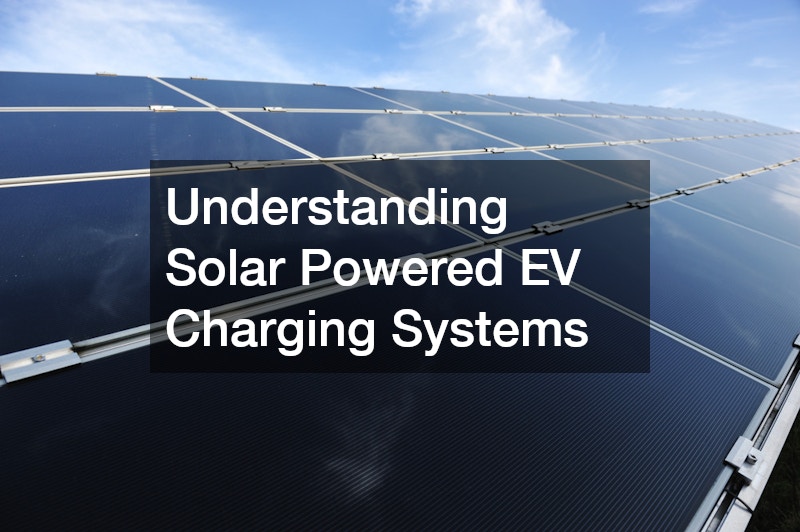As electric vehicles (EVs) continue to gain popularity, the demand for sustainable and eco-friendly charging options has increased. Solar-powered EV charging systems are emerging as a viable solution for reducing the environmental impact of charging electric cars. These systems harness the power of the sun to generate electricity, making EV charging a greener and more cost-effective option for both individuals and businesses. Here’s what you need to know about how solar-powered EV charging systems work, their benefits, and why they’re becoming an important part of the future of transportation.
How Solar-Powered EV Charging Systems Work
Solar-powered EV charging systems use photovoltaic (PV) panels to convert sunlight into electrical energy. The electricity generated by the solar panels is then fed into an inverter, which converts the direct current (DC) generated by the panels into alternating current (AC), which is needed to charge most EVs.
This energy can either be used immediately to charge the vehicle or stored in a battery system for later use. Some systems are connected to the grid, allowing excess energy to be sold back to utility companies, while others are designed to operate off-grid, making them entirely independent of traditional energy sources.
Benefits of Solar-Powered EV Charging Systems
Reduced Environmental Impact: Traditional EV chargers rely on electricity from the grid, which may be generated using fossil fuels. Solar-powered systems, on the other hand, generate clean energy, reducing the overall carbon footprint of EVs. This aligns with the goal of creating a more sustainable future and combating climate change.
Cost Savings: Once the solar panels are installed, the cost of charging an EV with solar energy is significantly lower than using grid electricity. Although there are upfront costs for the equipment and installation, long-term savings can be substantial. Over time, users can expect to recoup their investment, particularly in regions with abundant sunlight.
Energy Independence: Solar-powered charging systems provide users with more control over their energy supply. By generating their own electricity, individuals and businesses can reduce their reliance on utility companies and avoid potential price increases in traditional electricity sources.
Scalability: Solar-powered EV charging stations can be scaled to suit different needs. Whether it’s a small home installation or a larger network of charging stations for businesses, the technology can be adapted to various settings.
The Future of Solar-Powered EV Charging
As more countries push for renewable energy adoption and set ambitious goals for reducing carbon emissions, solar-powered EV charging systems are poised to play a significant role in the future of transportation. Governments are beginning to offer incentives for installing solar panels and EV chargers, further encouraging the growth of this eco-friendly technology. With advances in energy storage and solar panel efficiency, we can expect to see even more widespread adoption of solar-powered charging systems in the coming years.
Watch the video above to learn more about Circle Solar EV Chargers!.



